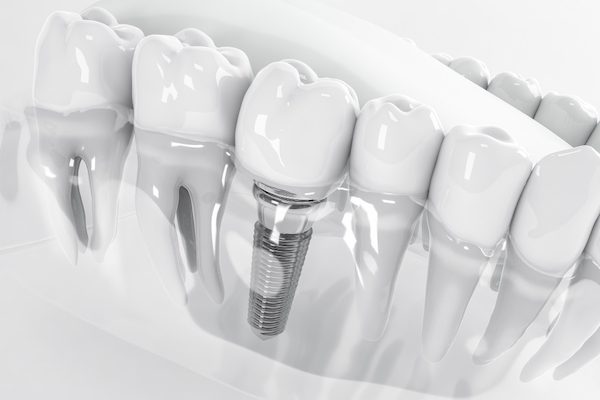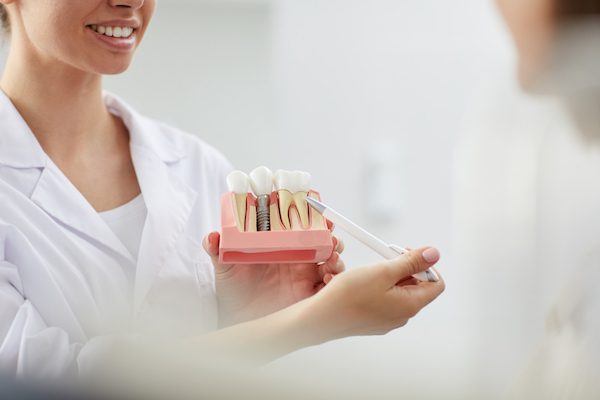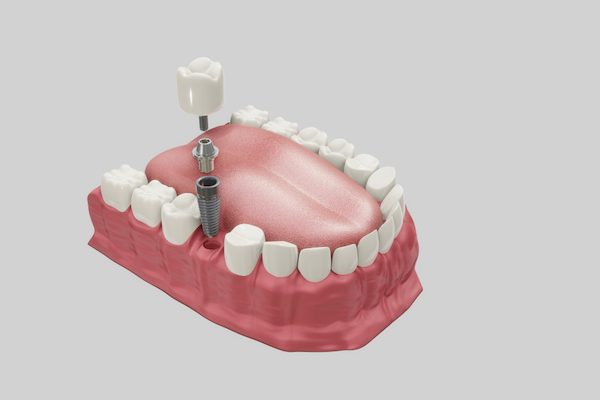Dental Implants
High-Quality Dental Implants in Campbelltown

Dental Implants Campbelltown
Dental implants replace missing teeth, giving you a complete, attractive smile.
A dental implant integrates with the jawbone to hold and support dental prostheses like crowns, bridges, dentures, or facial prostheses.
They enable you to live as you see fit and worry-free, eat, smile, and engage in all your daily activities.
Since the middle of the 1960s, people have used this procedure for a very long time because artificial teeth look natural.
Advantages of Dental Implants
- Durability
- Easier to eat
- Improve speech
- Improve function
- Enhance appearance
- Increase self-esteem

Components of Dental Implants
The body
A screw-like post that functions as the root of your new teeth
The abutment
A long-lasting attachment that holds and supports a tooth or set of teeth.
The crown
Usually made of porcelain or zirconium for strength and aesthetic appeal.
Is Dental Implants Right for You?
In general, dental implants may be beneficial if you:
- have one or more missing teeth
- do not have any illnesses that could impede bone healing
- over the age of 18 or has stopped growing
- have the sufficient bone structure to secure the implants
- maintain good gum health
- are unable to or do not want to wear dentures
- are a non-smoker or a former smoker
Dental Implantation Procedure

Planning and Diagnosis
The scans are required to show the locations of your sinuses and nerves. And to measure the size of the available bone, choose the best sites for the implants.
Placing the Dental Implant
During dental implant surgery, your Campbelltown dentist cuts your gum to expose the bone. Holes are drilled into the bone to receive the dental implant metal post. Because the post will act as the tooth root, it is implanted deep into the bone.
Your missing tooth will still be visible at this point. For appearance purposes, a temporary partial denture can typically be inserted. This denture can be taken out for cleaning and while you sleep.
Waiting for Bone Growth
Osseointegration starts after the metal implant post is inserted into your jawbone. The jawbone grows and fuses with the dental implant’s surface during this process. This procedure, which could take up to six months, aids in giving your new artificial tooth a sturdy foundation, much like roots do for natural teeth.
Placing the Abutment
When osseointegration is complete, additional surgery may be required to place the abutment — the piece to which the crown will eventually attach. This minor surgery is typically performed in an outpatient setting under local anaesthesia.
To position the abutment:
- Your dentist in Campbelltown reopens your gums to expose the dental implant.
- The dental implant is attached to the abutment.
- The gum tissue is then closed around the abutment but not over it.
When the dental implant metal post is implanted, the abutment is frequently attached to it. This means you won’t need an additional surgical procedure.
However, because the abutment protrudes past the gumline, it is visible when you open your mouth — and will remain so until your Campbelltown dentist completes the tooth prosthesis.
Some people dislike that appearance and would rather have the abutment placed in a separate procedure.
Dental Implants in Campbelltown
If you’ve lost teeth and want to use dental implants to restore your smile and chewing ability, let your Marketfair Dental Care team take care of you.
At Marketfair Dental Care, we treat all our patients as we would our families by using the most appropriate and cost-effective solutions.
Visit your Campbelltown dentist today!
Call us at (02) 4620 0800 to learn more about dental implants in Campbelltown, or make an appointment online.
We are located at Marketfair Campbelltown Shop 21B, 4 Tindall St in Campbelltown.

FREQUENTLY ASKED QUESTIONS
How should dental implants be taken care of?
How long does recovery from dental implant surgery typically take?
It usually takes six months to heal after the procedure thoroughly.
Who is suitable for dental implants?
Anyone who has lost a tooth and has enough jawbone is qualified for a dental implant.
